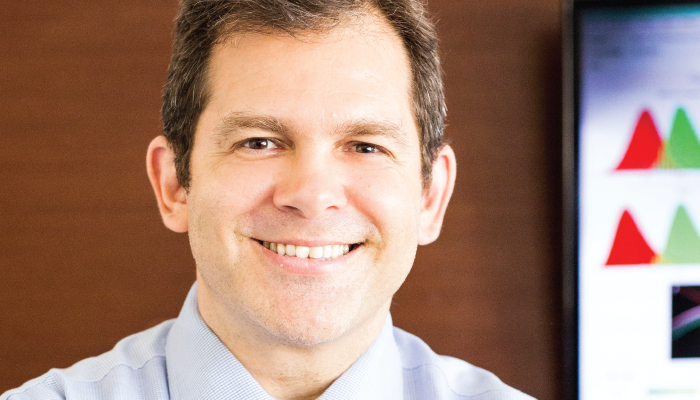
Renato Ambrósio Jr.
What makes an excellent refractive surgeon? One that understands the importance of knowledge, technology, and patient care. These are the foundational principles in what I call the “Virtue Compass,” derived from stoic notions of wisdom, self-mastery, justice, and temperance. It is not a guide or a formal code but a suggested framework for us, refractive surgeons, to reflect on our responsibilities and roles. By approaching these virtues, we are encouraged to consider our ethical duties, the impact of our work, and our responsibility for the continuous pursuit of knowledge and innovation.
Indeed, refractive surgery has changed from its foundations of controversial procedures to becoming a respected scientific specialty within ophthalmology. Its evolution highlights the necessity of establishing standards and a dedicated curriculum. For example, the World College of Refractive Surgery and Vision Science advocates this form of surgery as a new medical specialty, with ophthalmology as its prerequisite. It also brings a new mindset for ophthalmologists that strives for ultimate perfection while acknowledging the paradox of perfection.
North: Excellence
"Excellence is not an act but a habit." – Aristotle
Surgeons must stay updated with new tools while continually improving their skills. Artificial intelligence (AI) is crucial in this process, offering advanced diagnostic tools, personalized treatment plans, and predictive analytics to improve surgical outcomes. The (A2 I)2 algorithm, specifically, combines applied ancient intelligence ("the Why's") with applied artificial intelligence ("the How's"), thus integrating historical insights with modern technologies.
South: Patient care
"The good physician treats the patient who has the disease." – William Osler
Patient care is at the heart of any field of medicine, and, for me, a holistic approach is the only way to ensure the best possible outcome. This means understanding each patient's unique needs for vision, addressing concerns, and providing comprehensive preoperative and postoperative care. We must also provide continuous communication and education to fully inform patients about their treatment options, along with the associated risks and benefits.
East: Knowledge
"An investment in knowledge pays the best interest." – Benjamin Franklin
Knowledge in our field is dependent on maintaining an up-to-date understanding of the latest research, techniques, and technologies. While some surgeons may disengage with this practice, having a base-level comprehension of methodologies, statistical analyses, and scientific criticism is essential.
West: Technology
"The science of today is the technology of tomorrow." – Edward Teller
Excimer and femtosecond lasers, along with advanced diagnostic imaging technologies are at the cutting edge of innovation in refractive surgery. These tools enable us to offer patients the most advanced and minimally invasive options. However, it's crucial to continue advancing these technologies. For instance, diagnostic tools have evolved from basic instruments to comprehensive platforms that provide a deeper understanding of ocular structures and conditions.
Northeast: Practical skills
"Skill to do comes of doing." – Ralph Waldo Emerson
Practical skills include not only the technical aspects of performing surgery but also managing complications, optimizing outcomes, and providing effective postoperative care. Mastery of these skills requires hands-on experience, continuous training, and a dedication to refining techniques. In addition, mastering communication is relevant for empathic patient education. Refractive surgeons should set realistic expectations and explain procedures and postoperative instructions clearly.
Northwest: Scientific innovation
"Innovation is the ability to see change as an opportunity, not a threat." – Steve Jobs
Surgeons must be at the forefront of research and development. This requires a firm commitment to adopting new methods and technologies, surgical techniques, materials, and treatment protocols. Again, AI and data analytics play a central role by enabling large-scale data analysis, predictive modeling, and the development of new algorithms. These tools can also help us identify trends, optimize treatments, and accurately predict patient outcomes.
Southeast: Training
"In learning, you will teach, and in teaching, you will learn." – Phil Collins
Training emphasizes the importance of continuous education and professional development. It encompasses formal education, hands-on experience, mentorship, and participation in professional organizations and conferences. By engaging in these activities, we improve our skills and contribute to the growth and development of our colleagues and the field as a whole.
Southwest: Standards
"Without standards, there can be no improvement." – Taiichi Ohno
Standards involve clinical guidelines, ethical practices, and regulatory requirements. The best of which are so well-designed that even those with less altruistic intentions are compelled to follow them because they offer clear benefits and improvements.
The culmination
In refractive surgery, the "good" may not be good enough. We must embrace the concept of constant optimization. This involves a devotion to lifelong learning, staying abreast of advancements, and continuously improving our practice. Embracing the principles of black box thinking, as described by Matthew Syed, we learn from our failures and view them as opportunities for growth. Of course, we can make significant improvements and enhance our surgical outcomes by diligently analyzing and understanding our unsuccesses.
